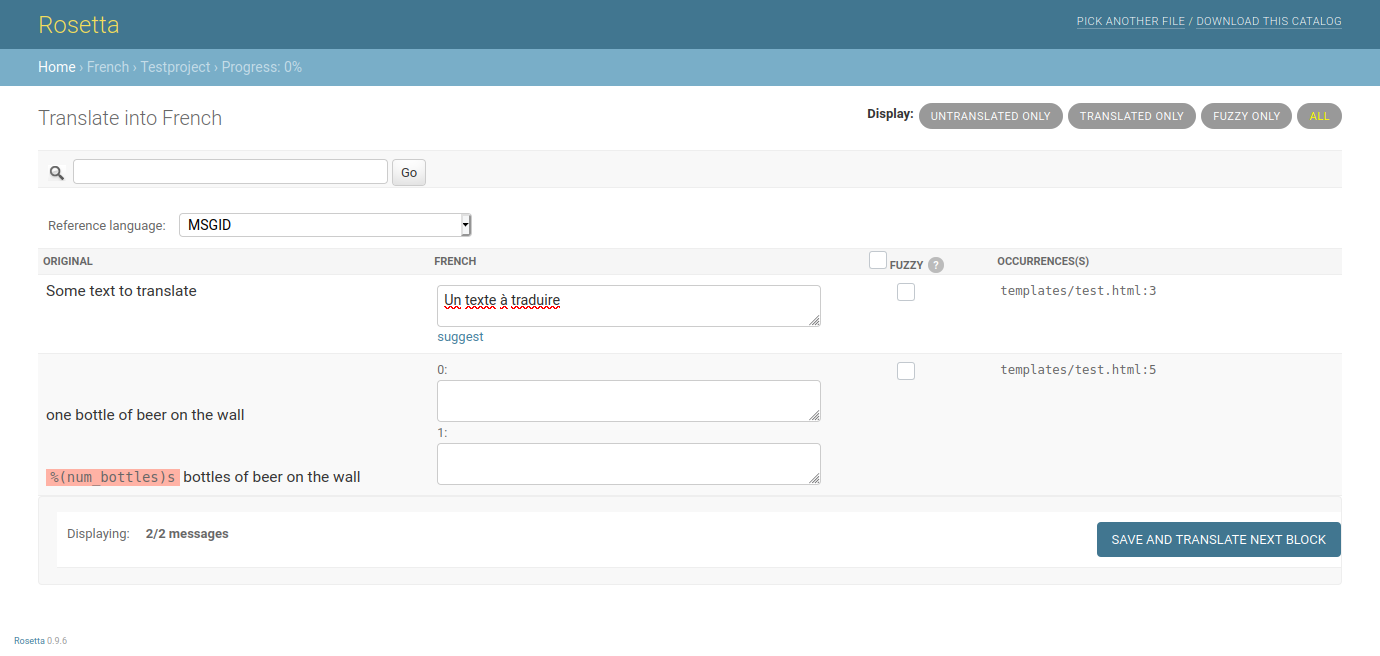Django Consistency Model
DCM is a set of tools that helps you to keep your data in your Django Models consistent.
Motivation
- You have a lot of legacy and inconsistent data in your project and you need to clean it out
- You want to monitor the broken data
- You are looking for a very simple solution.
Quick Start
Install the package:
pip install django-consistency-model
Add new app into INSTALLED_APPS:
INSTALLED_APPS = (
# ...
"consistency_model",
)
Add your first validator using decorator consistency_validator:
from decimal import Decimal
from django.db import models
from consistency_model import consistency_validator
class Order(models.Model):
total = models.DecimalField(
default=Decimal("0.00"), decimal_places=2, max_digits=10
)
refund = models.DecimalField(
default=Decimal("0.00"), decimal_places=2, max_digits=10
)
revenue = models.DecimalField(
default=Decimal("0.00"), decimal_places=2, max_digits=10
)
@consistency_validator
def validate_revenue(self):
assert self.revenue == self.total - self.refund, "revenue = total - refund"
Run command to check validators:
./manage.py consistency_model_check
What if I need to check more than one condition in one validator
The first thing you may think of is using more than one validator, and it is common to have more than one validator (for example, one validator per field).
Sometimes, you want to check more than one aspect in one validator or have a complex calculation you don't want to do for every validator.
For those cases, you may want to use function consistency_error. It shows the system an error without raising an exception, so one validator can generate more than one error.
from decimal import Decimal
from django.db import models
from consistency_model import consistency_validator, consistency_error
class Order(models.Model):
total = models.DecimalField(
default=Decimal("0.00"), decimal_places=2, max_digits=10
)
refund = models.DecimalField(
default=Decimal("0.00"), decimal_places=2, max_digits=10
)
revenue = models.DecimalField(
default=Decimal("0.00"), decimal_places=2, max_digits=10
)
@consistency_validator
def validate_total(self):
assert self.total >= 0, "can't be negative"
@consistency_validator
def validate_revenue(self):
if self.revenue < 0:
consistency_error("can't be negative", "negative")
if self.revenue != self.total - self.refund:
consistency_error("revenue = total - refund", "formula")
As you can see, one validator (validate_revenue) checks two factors of the field revenue.
The function consistency_error has two arguments - message and name(optional). The name is a unique value for the validator and will be used in monitoring.
I don't want to check all of the data, but only one model instead.
When you add a new validator, you don't want to check all the data. You want to test only one validator instead.
Argument --filter can help you with that
./manage.py consistency_model_check --filter storeapp.Order.validate_revenue
Check only one model
./manage.py consistency_model_check --filter storeapp.Order
Check the model but excluding one validator. Argument --exclude excludes validator from validation circle.
./manage.py consistency_model_check --filter storeapp.Order --exclude storeapp.Order.validate_revenue
Check only one object. Using --object you can check a specific object in db.
./manage.py consistency_model_check --object storeapp.Order.56
You can combine --object with --filter and --exclude as well.
I want to monitor my DB on consistency constantly.
The idea of consistency monitoring is very simple. You add the command consistency_model_monitoring to your cron. The command checks DB and saves all of the errors in ConsistencyFail. Nothing is too complicated.
As the result, you can see all of the inconsistency errors in admin panel. Or you can connect pre_save signal to consistency_model.ConsistencyFail and send an email notification in case of any new inconsistency.
Monitoring configuration.
A typical situation is when you don't want to monitor all the data but only recently added/updated data. By default, the system checks only 10k recent IDs, but you have a lot of flexibility to change that with function register_consistency.
Let's take a look of how one can be used.
For model Order you want to check only 10 last ids.
from consistency_model import register_consistency
register_consistency(Order, limit=10)
register_consistency can be used as class decorator
from consistency_model import register_consistency
@register_consistency(limit=10)
class Order(models.Model):
# ...
you can order not by id, but modified_on field
from consistency_model import register_consistency
register_consistency(Order, order_by='modified_on')
you can use a consistency checker class to overwrite the whole query for consistency check
from django.db import models
from consistency_model import register_consistency, ConsistencyChecker
class Order(models.Model):
is_legacy = models.BooleanField(dafult=False)
# ...
class OrderConsistencyChecker(ConsistencyChecker):
limit = None # I don't want to have any limitation
order_by = 'modified_on'
def get_queryset(self):
return self.cls.objects.filter(is_legacy=False)
register_consistency(Order, OrderConsistencyChecker)
Again, it is possible to be used as class decorator for any on both classes.
For Model:
from django.db import models
from consistency_model import register_consistency, ConsistencyChecker
class OrderConsistencyChecker(ConsistencyChecker):
# ...
@register_consistency(OrderConsistencyChecker)
class Order(models.Model):
is_legacy = models.BooleanField(dafult=False)
# ...
For Checker:
from django.db import models
from consistency_model import register_consistency, ConsistencyChecker
class Order(models.Model):
is_legacy = models.BooleanField(dafult=False)
# ...
@register_consistency(Order)
class OrderConsistencyChecker(ConsistencyChecker):
# ...
Settings
CONSISTENCY_DEFAULT_MONITORING_LIMIT (default: 10_000) - default limit rows per model
CONSISTENCY_DEFAULT_ORDER_BY (default: "-id") - defaul model ordering for monitoring
CONSISTENCY_DEFAULT_CHECKER (default: "consistency_model.tools.ConsistencyChecker") - default class for consistency monitoring
If you have pid package installed, one will be used for monitoring command to prevent running multiple monitpring process. The following settings will be used for monitoring
CONSISTENCY_PID_MONITORING_FILENAME (default: "consistency_monitoring")
CONSISTENCY_PID_MONITORING_FOLDER (default: None) - folder the pid file is stored. tempfile.gettempdir() is using if it is None
Contributing
We’re looking to grow the project and get more contributors especially to support more languages/versions. We’d also like to get the .pre-commit-hooks.yaml files added to popular linters without maintaining forks / mirrors.
Feel free to submit bug reports, pull requests, and feature requests.
Tools:







